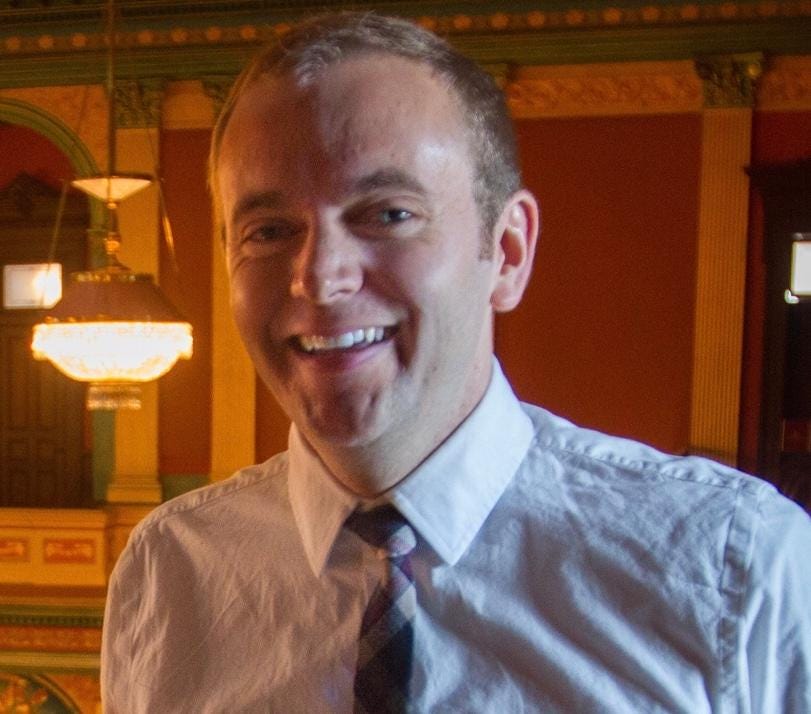Michigan leaders hope new hotel tax law will grow Grand Rapids 'for generations'
 Craig Mauger
Craig MaugerGrand Rapids — Gov. Gretchen Whitmer and the leaders of the Michigan Legislature promoted on Monday a new law they say will provide funding for "transformational" projects in Grand Rapids by potentially allowing for a city-led tax on hotel stays.
Whitmer, a Democrat, signed the policy into law on April 2. It would authorize cities and townships in Kent County to collect an excise tax of up to 2% of the total charges for accommodations, as long as voters in the city or township approved.
Officials in Grand Rapids, Michigan's second largest city, want to use the money to build an amphitheater along the Grand River and a downtown soccer stadium.
"This law will help fund projects that improve the quality of life and bring more people to Grand Rapids, ensuring growth for generations," Whitmer said.

Whitmer, House Speaker Joe Tate, D-Detroit, and Senate Majority Leader Winnie Brinks, D-Grand Rapids, all spoke at a press conference in downtown Grand Rapids on Monday. Michigan currently has a patchwork of laws that allow various counties and regions in Michigan to institute differing taxes on hotel accommodations.
For instance, the Convention and Tourism Marketing Act authorizes an assessment of up to 2% on rooms in facilities with 35 or more guest rooms in Wayne County or a neighboring county to Wayne County, according to the nonpartisan House Fiscal Agency.
Lawmakers' new policy amended a past law that allowed counties to enact a hotel tax of up to 5% of the total charges if the county had a population of less than 600,000 and a city with a population of at least 40,000.
Eight counties, Calhoun, Genesee, Ingham, Kalamazoo, Kent, Muskegon, Saginaw and Washtenaw, levy a tax under the law, according to the House Fiscal Agency.
The new legislation would allow for those counties to pursue increasing the tax, changing the maximum limit from 5% to 8%.
As for the city component of the amendments, Grand Rapids could serve as a proving ground to determine whether to allow more cities to authorize hotel taxes, said Rep. John Fitzgerald, D-Wyoming, the bill's primary sponsor.
"I do believe that there is an appetite for that to go wider in Michigan," Fitzgerald said.
Rep. Steve Carra, R-Three Rivers, was among the lawmakers who opposed Fitzgerald's bill.
Carra argued in a statement, that the legislation represented a tax increase that "will further drive up costs to stay in a hotel." Carra also said it was an "inappropriate way to raise funds for special interest projects in the Grand Rapids area."
Fitzgerald said he expects a vote on a hotel tax to take place in Grand Rapids this year with money going to the amphitheater and soccer stadium.

Grand Rapids Mayor Rosalynn Bliss described the projects as "transformational."
The new policy provides a local revenue stream, paid for primarily by visitors, to support significant local initiatives, Bliss said.
"It is truly going to elevate our entire region and ensure that we continue the positive momentum we are seeing today," Bliss said.
Whitmer touted the soccer stadium, linking it to a popular television character on Apple TV who coached a fictional team in England.
"Maybe, if we're lucky we can get Ted Lasso to coach," Whitmer said.
cmauger@detroitnews.com